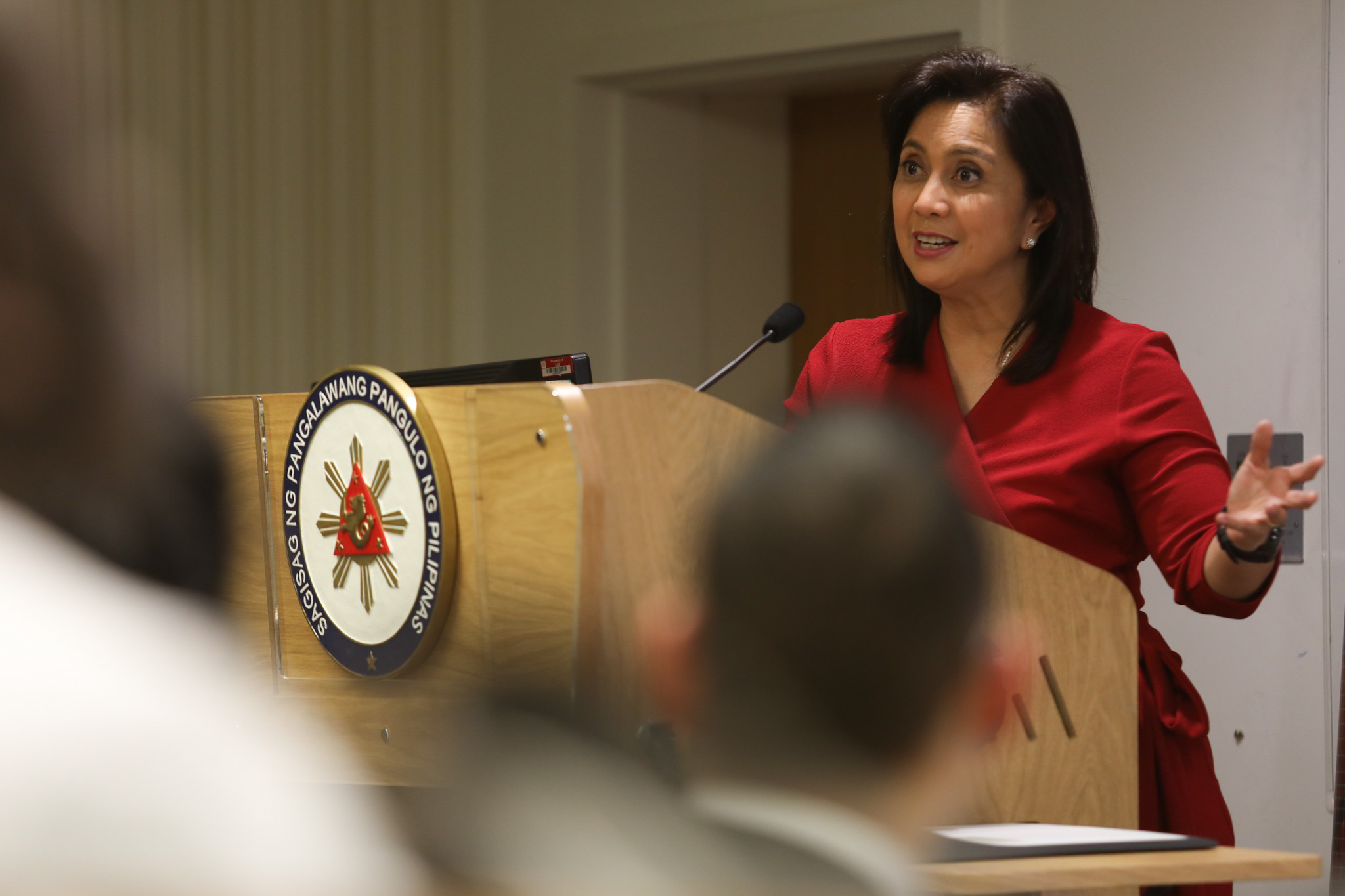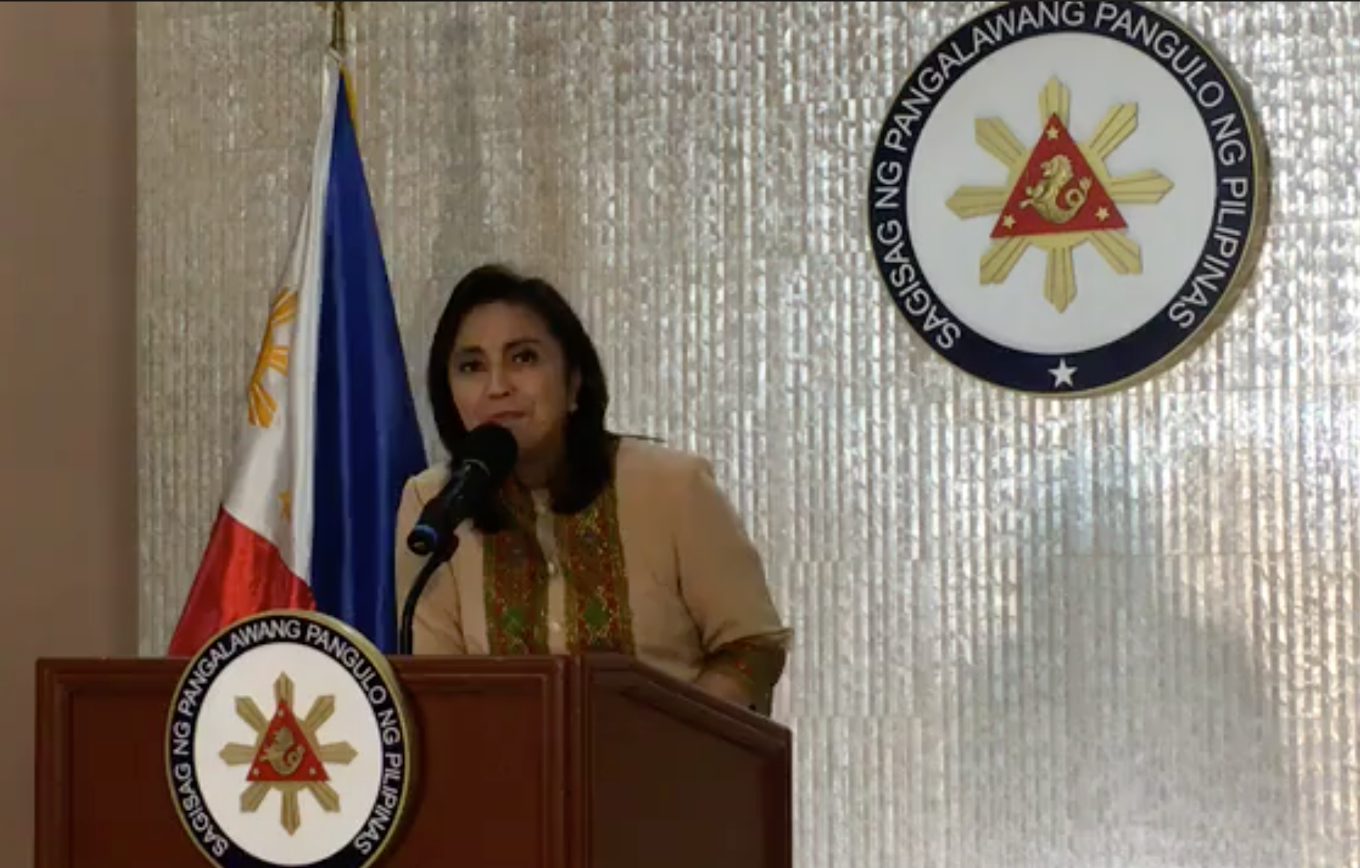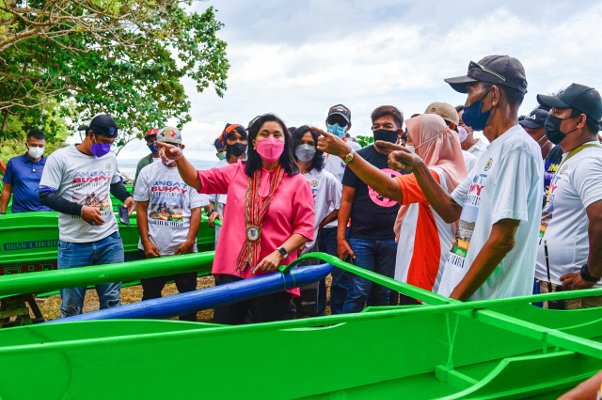(UPDATED) Several readers asked VERA Files Fact Check to look into a claim by Vice President Leni Robredo in an April 6 speech at the London School of Economics (LSE).
STATEMENT
The transcript of Robredo’s speech uploaded on the Office of the Vice President website reads:
“Based on his (Ateneo School of Government Dean Ronald Mendoza’s) research and his recent testimony at a Senate hearing, ten provinces with the highest dynastic share in the 2016 election consistently rank in the Top 20 Poorest Provinces since 2004. These are Maguindanao, Sulu, and Lanao del Sur from ARMM; Batangas and Rizal from the CALABARZON region; Pampanga, Bulacan, and Nueva Ecija from Region III; and Pangasinan and Ilocos Norte from Region I.”
Source: Office of the Vice President website, Transcript of speech by Leni Robredo, London School of Economics and Political Science, April 6, 2018
FACT
Mendoza’s presentation as resource person in a Feb. 15 Senate committee hearing on anti-political dynasty bills, forwarded to the media by the office of Sen. Francis Pangilinan, chair of the committee on electoral reforms and people’s participation, does not support the claim.
A screengrab of his slide titled “Poorest Provinces are Rich… in Fat Dynasties” shows a list of the 15 poorest provinces in the country and details about their respective political dynasties.
The list does not match the provinces enumerated in the Robredo speech transcript.
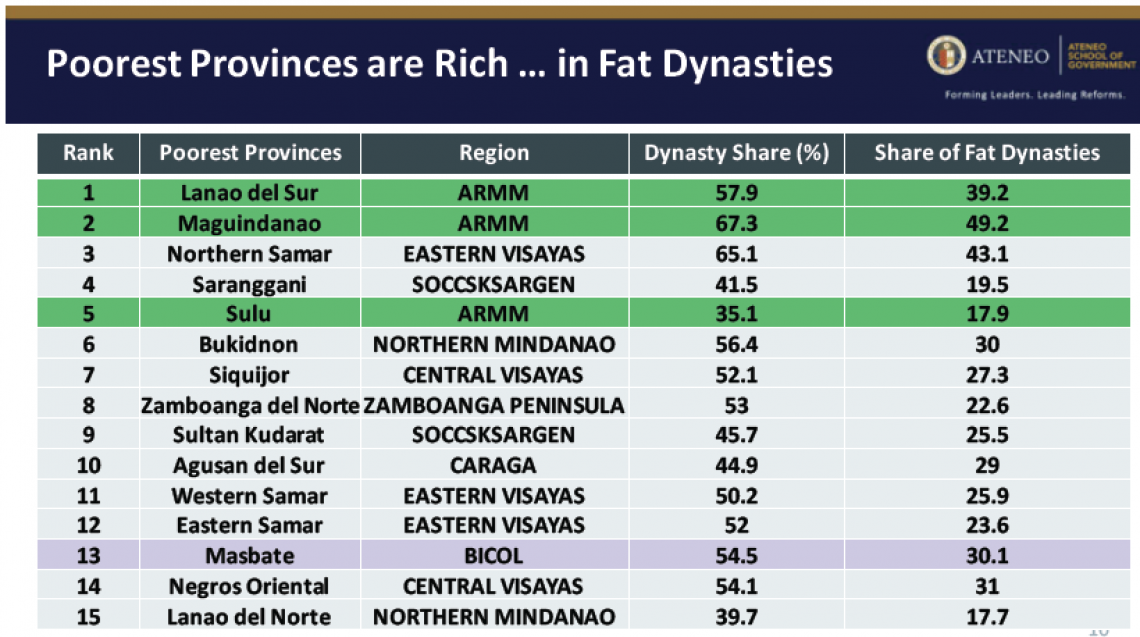
The poorest provinces in Mendoza’s presentation are Lanao del Sur, Maguindanao, Northern Samar, Saranggani, Sulu, Bukidnon, Siquijor, Zamboanga del Norte, Sultan Kudarat, Agusan del Sur, Western Samar, Eastern Samar, Masbate, Negros Oriental and Lanao del Norte.
A January 2017 working paper “Dynasties Thrive under Decentralization in the Philippines” authored by Mendoza and Miann S. Banaag contains almost the same statement in the Robredo transcript, except for the part about dynastic provinces consistently ranking among the poorest:
“Ten provinces with the highest dynastic share in the 2016 election consistently rank in the top 20 since 2004. These are Maguindanao, Sulu and Lanao del Sur from ARMM; Batangas and Rizal from the CALABARZON region; Pampanga, Bulacan and Nueva Ecija from Region III; and Pangasinan and Ilocos Norte from Region I.”
Source: Ateneo School of Government Working Paper, Dynasties Thrive under Decentralization in the Philippines
In his Senate presentation, Mendoza showed a link to the website “Building an Inclusive Democracy,” which contains information on the proportion of elected officials occupied by dynasties per province.
Details here also do not match the provinces mentioned in the Robredo speech transcript.
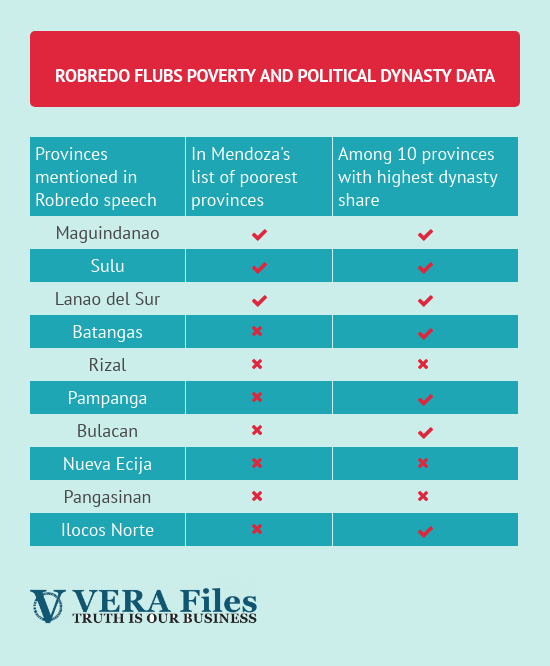
Only seven are in the top ten: Maguindanao, 64 percent dynasty share, 1st; Batangas, 62 percent, 2nd; Sulu, 62 percent, 3rd; Ilocos Norte, 61 percent, 4th; Lanao del Sur, 59 percent, 6th; Pampanga, 61 percent, 5th, Bulacan, 59 percent, 7th.
Pangasinan, 55 percent dynasty share, and Nueva Ecija, 53 percent, are 13th and 18th respectively.
Rizal, 50 percent dynasty share, is outside the top 20 provinces at 23rd.
UPDATE: The Office of the Vice President, in a letter to LSE associate professor James Putzel, has apologized for the mix up.
“It is unfortunate that there was an inadvertent misinterpretation of the list that was presented in the (Mendoza) study, which was integrated in the speech,” the letter read.
“The study enumerated the same ten provinces for being part of the Top 20 Most Dynastic Philippine Provinces from 2004 to 2016, not for being part of the Top 20 Poorest Provinces,” it added.
The letter also said the office has “instituted the necessary corrective action to prevent similar incidents in the future.”
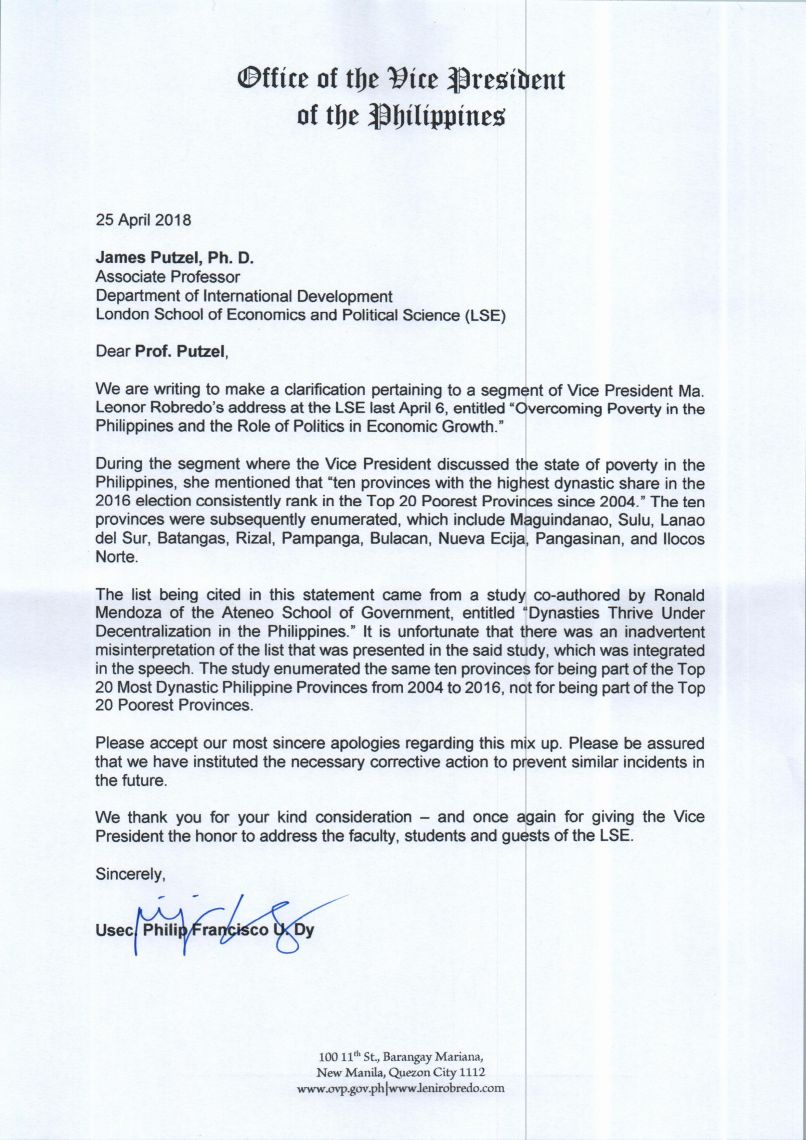
Sources:
Office of the Vice President, Overcoming Poverty in the Philippines and the Role of Politics in Economic Development, Transcript of speech by Leni Robredo, London School of Economics and Political Science, April 6, 2018
Senate of the Philippines, Committee on Electoral Reforms and People’s Participation, Hearing on Anti-Political Dynasty Act, February 15, 2018
Mendoza, R & Banaag MS 2017, “Dynasties Thrive under Decentralization in the Philippines Ronald U. Mendoza,” Ateneo School of Government Working Paper 17-003
Building an Inclusive Democracy website
(Guided by the code of principles of the International Fact-Checking Network at Poynter, VERA Files tracks the false claims, flip-flops, misleading statements of public officials and figures, and debunks them with factual evidence. Find out more about this initiative and our methodology.)
